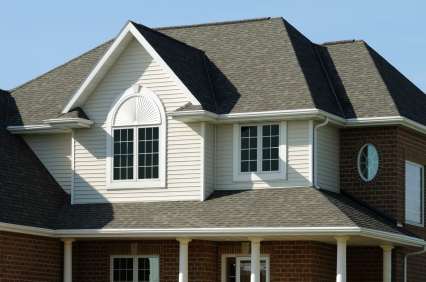Common HOA Practices & Why They’re Implemented
Homeowner associations (HOAs) are the governing bodies in charge of creating and regulating community guidelines. As such, they’re often thought of as the “neighborhood police,” infamous for their many property rules and regulations. But there’s much more to this long list of rules than initially meets the eye: These community guidelines help form the framework for a successful neighborhood. There are many common practices that HOAs typically follow, and why they exist will have you thinking a bit differently about your community association.
What are the Most Common HOA Rules & Regulations?
When you buy property in an area that’s part of a community association, you are automatically added to its membership and are responsible for following its rules and regulations. While each community is unique in its regulations, there are a few common HOA rules that most associations adhere to, including:
Architectural Controls
Nearly all HOAs have regulations regarding the architectural changes you’re allowed to make to your home. Adding a deck, patio, or home addition without seeking written approval can land you with a community violation in no time.
Holiday Decorations
Many HOAs have strict rules around how elaborate your holiday decorative displays can be. They may even regulate how large your decorations can be and at what times of the year you can put them up, and — more importantly — when they must be taken down.
Lawn Maintenance
From preventing overgrowth to regulating what types of plants you’re allowed to grow on your property, lawn maintenance guidelines set by your HOA can range in restrictiveness depending on your specific community.
Noise Complaints
Usually, HOAs set rules concerning noise levels in a community, with many guidelines, including designated quiet hours. This is common even outside HOA communities as many counties and cities also set noise ordinances to preserve the peace.
Home Occupancy
There may be regulations within your community around how many occupants you’re allowed to have living in your house. Be sure to check with your association before buying a home — especially if you have a larger family or anticipate having extended family members living with you in the future.
Parking Regulations
Many HOAs set rules about how many vehicles you may have on your property and where those cars are allowed to park. Particularly if you live in a condo, you’ll need to see how many parking spaces come with your property purchase in your deed.
Pet Limits
From pet size and type to the number of pets you’re allowed in your home, HOA regulations around furry friends can be fairly strict. Some organizations may specify individual breeds within their guidelines, which could be problematic for some pet owners.
Rental Restrictions
If you recently purchased a condo as a way to make passive income via rental, you’ll need to check with your HOA first. Many associations have rules about whether or not you’re allowed to rent out your space, for how long, and even how much you’re allowed to charge.
Trash & Recycling
Waste removal is a critical part of keeping communities clean and healthy, so it goes without saying that your HOA will have regulations around trash and recycling. Rules might include limits on what’s allowed in the community dumpster and set schedules for curbside trash and recycling collection.
Why Do HOAs Set These Rules & Regulations?
While these rules might seem restrictive at first glance, there are great reasons why HOAs set these regulations. Architectural, landscaping, trash removal, and even parking restrictions all serve the greater purpose of keeping communities looking their best. Not only that, but these regulations also help preserve and enhance home values for a fairer real estate market. These rules are designed to protect the value of your property investment, especially when it comes to rental regulations,
In addition to aesthetics and value, HOA rules are also designed to help keep community members safe and healthy. Limits on occupancy help ensure community members are living in healthy environments, while parking restrictions can help prevent unnecessary accidents. It might take some getting used to, but after seeing how these rules better serve the community, you’ll be thanking your HOA for all its regulations in the long run.
Tidewater Property Management for Your HOA Management Needs
At Tidewater Property Management, our community association experts are here to help you manage every aspect of your HOA. Our managers are trained and experienced in all areas of rental property management, allowing us to expertly navigate any issues that your HOA may face. We specialize in supporting condominium communities, apartment complexes, and multi-family neighborhoods so they can remain successful, safe, and sanitary.
Learn more about Tidewater’s property management services by calling us at (443) 548-0191 or contacting us online today!

Since we opened our doors in 1989, Tidewater has been offering personal customer service throughout Maryland, Virginia, Delaware and West Virginia. Due to our dedication to helping homeowners buy, sell, rent, and maintain their properties, we have become one of the largest family owned full-service real estate management companies in the area.
LEARN MORE











